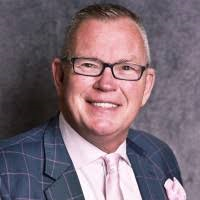The National Association of Mortgage Brokers inaugurated Kimber White as its new president during the virtual NAMB National 2020 conference. White is a partner at RE Financial Service and has been an active member of the mortgage industry for more than 30 years. HousingWire sat down with White to talk about his strategy to fulfill the “NAMB for ALL” mission in 2021.
HousingWire: What’s the biggest challenge for mortgage brokers right now?
Kimber White: I think the biggest challenge right now is a lack of proper education. I think there’s been a focus on growing the broker channel at the expense of really educating the broker channel. It reminds me of the early 2000s, when the focus was growth and anyone who had a heartbeat could become a broker, whether they had proper training or not. That mentality is going to backfire on us. At NAMB we are focused on education, especially around first-time homebuyers. We’re focused on expanding opportunities and we’re focused on fair housing initiatives.
HW: Tell me about some of your fair housing initiatives and how that serves your larger mission.
KW: When you look at the inequality in housing, that often comes from a lack of education. There is a lack of financial literacy in schools and in many communities, and we want to help provide the tools people need to understand home buying and what that process looks like.

Fannie Mae’s HomeReady program and Freddie Mac’s Home Possible program offer some incredible options for those who don’t have a large down payment or have limited income, but potential homebuyers may not know anything about them. Mortgage brokers are in a great position to have those conversations with potential homebuyers and really bring those with a middle-class income back to the table.
The wealth gap in our country has only gotten wider since COVID, and those who might have been first-time homebuyers are now having to live on the money they were saving for a down payment. We want to build awareness of these programs and help qualified borrowers get into homes.
HW: How does your own background inform your understanding of that inequality?
KW: I was born and raised in rural North Carolina and my family was poor. There was no financial literacy in my life. I was told I would never own a home, that I wasn’t good enough. I have had the same experience that some of these potential homebuyers have right now, and helping them is such a passion for me. I know what it is to be poor and to have people try to define you by where you come from.
In addition, being gay, when I first started as a broker, my mentor told me that my lifestyle would hold me back, that I wouldn’t fit in this industry. He gave me my start and he was trying to help me, but because of that I believed I couldn’t be myself and be successful in this industry. That was something I had to overcome. Even up until about seven years ago that was something I was afraid of.
But that also motivates me now. I want our organization to fight for every person — no matter their background, or sexual orientation, or color of skin — to have the opportunity to own a home, and to be part of this amazing industry.
That’s one reason I am so proud to lead NAMB. We have an incredibly diverse board and our NAMB for ALL mission is about expanding opportunities for everyone.
HW: You’ve partnered with the CFPB to provide financial literacy in local communities. How did that come about?
KW: The CFPB has a whole spectrum of financial education content for K-12 educators, and they actually expanded that content this year to include more activities since educators, parents and kids are adjusting to school that might be virtual. A NAMB lobbyist brought this to our attention.
I knew mortgage brokers were perfectly positioned to help with this at a local level so we jumped in to be a partner with the CFPB. This is part of a long-term strategy to educate the whole family. Children bringing home materials involves the parents in financial literacy, which benefits the whole family.
HW: It’s an election year and I know NAMB has been very active in advocacy. What are some of the issues you’ve been working on in D.C.?
KW: NAMB has been actively advocating for mortgage brokers since 2003. When the talk was to get rid of mortgage brokers after the financial crisis, we testified on Capitol Hill, and when COVID first hit, we were first out of the gate because we didn’t want to see a repeat of what happened in 2008-2009. We worked right away to protect credit reporting. We issued the first call to action and more than 60,000 people responded.
NAMB has two lobbyists — one Democrat and one Republican — so we can work with both sides to achieve our goals. This year we worked to support the Trigger Leads Bill, which will protect consumers from having their data sold to companies who have no relationship or transactional connection to them. We’re also working on finding solutions for the qualified mortgage and on issues surrounding flood insurance.
We have lobbied hard against the adverse market fee, which should just be called a consumer tax. Why should we raise the interest rate at a time when people need to use the equity in their home during a pandemic? The GSEs have said that people would refi anyway, but that mentality speaks to the inequality issue. For some people, that eighth of a point is significant. That $30 a month may mean nothing to someone in D.C., but for some people having $30 in their pocket every month is the difference in paying a bill or not.
HW: You talked about playing the long game — developing strategy that looks beyond just growth. What does that look like?
KW: The mortgage broker channel likes to talk about growth, and that is important, but we need to talk about growing effectively and efficiently. When COVID hit, certain lenders couldn’t handle the volume — turns out some brokers didn’t know how to structure anything. The growth-at-any-cost mindset reminds me of the old Countrywide days, where brokers were plug and play. If you had a pulse, you got put behind a screen. And what happened? We ended up losing 65% of the broker channel in the market. We’re going to see that again if we don’t educate brokers on how to really do their job.
That’s one reason that starting in January, loan officers will be able to take 16 hours of courses through NAMB University at a rate that is affordable for the first-time loan officer. We are providing the tools a loan officer needs and making them readily available — covering the basics and also offering master classes on things like how to start your own business and how to fill out a tax return for your business.
We are offering our new LOS, LendingPad, at a discounted rate for members and we recently launched NAMB Concierge, which enables brokers to go online and get answers to common problems as well as get lender contacts for specific issues.
The bottom line is that NAMB is for the broker first and foremost, and we’re committed to supporting brokers as they do what’s best for consumers.




